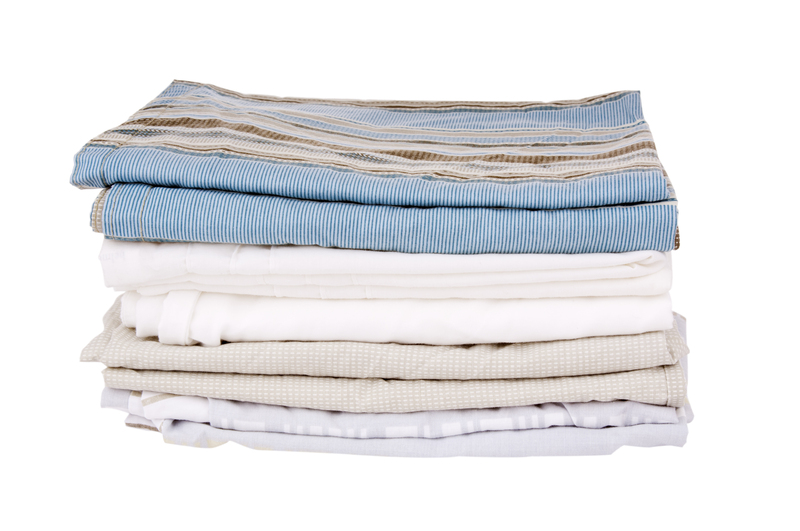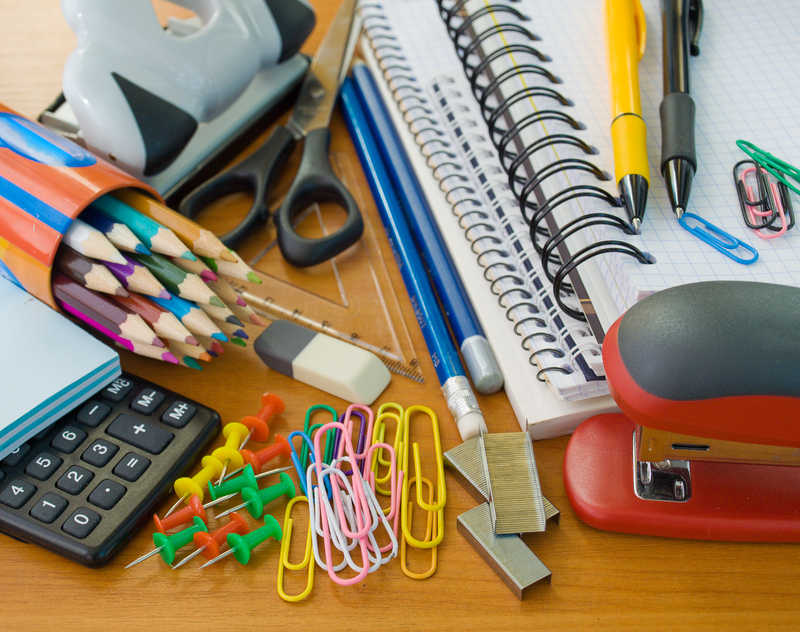Eco-Friendly Solutions for Getting Rid of Pots and Pans
Whether you're upgrading your kitchen essentials or finally deciding to part ways with that burnt, battered frying pan, the question arises: how can you dispose of old cookware sustainably? Pots and pans may seem innocuous, but they can contribute significantly to landfill waste. Choosing eco-friendly solutions for getting rid of pots and pans not only helps the environment but can also benefit your community and household. This comprehensive guide will explore green ways to dispose, donate, recycle, or repurpose your old kitchenware.

Why Eco-Friendly Disposal of Pots and Pans Matters
Traditional disposal methods for unwanted cookware often involve tossing them straight into the trash. However, old pots and pans are typically made from materials like aluminium, stainless steel, cast iron, or even non-stick Teflon coatings that don't biodegrade and aren't always accepted in curbside recycling. Sending these items to landfill can have several harmful effects:
- Resource waste: Metal cookware is made with finite resources that can be reused or recycled.
- Environmental harm: Teflon and certain coatings can leach chemicals into soil and water supplies.
- Landfill overcrowding: Large, durable items like pans take up space for years.
This is why eco-friendly solutions for getting rid of pots and pans are necessary for anyone looking to live more sustainably.
Can You Recycle Pots and Pans?
You might wonder, can dirty or damaged cookware actually be recycled? The answer isn't always straightforward. Many municipal recycling programs don't accept pots and pans because of their size, material composition, or non-stick coatings. Luckily, there are alternative recycling options:
1. Scrap Metal Recycling Centers
Most cookware, such as aluminium, copper, or stainless steel pots and pans, can be recycled as scrap metal. Here's what you need to know:
- Local scrap yards will usually accept uncoated metals. Just call ahead to confirm what types they'll take.
- Remove any plastic handles or glass lids as these often can't be recycled with the metal base.
- If your cookware has a non-stick or Teflon coating, check with the center if they can process these materials.
Expert Tip: Collect your worn-out pans and stockpots and drop several off in one trip--you may even earn a bit of money depending on the weight and type of metal!
2. Manufacturer Take-Back Programs
Some cookware brands offer take-back or recycling programs. Notable examples include:
- Le Creuset: Select locations offer recycling options for cast iron cookware.
- GreenPan: Their "Pan for Pan" recycling initiative accepts damaged non-stick pans by mail.
- Other brands: Check your manufacturer's website or customer service for any eco-friendly disposal guidance.
Utilizing these brand take-back programs ensures your cookware is responsibly recycled, often by companies most qualified to reuse the materials.
3. Recycling Events or Drop-Off Sites
Many communities partner with environmental groups to host household recycling events in spring or fall. These events often accept bulky items like old pots and pans. Local hardware stores may also serve as drop-off sites for scrap metals or reusable household goods.
Creative Ways to Repurpose Old Pots and Pans
If your cookware is still structurally sound--no holes, major cracks, or dangerous warping--you may be able to give it a second life. Here are some inventive, planet-friendly ideas for reusing old pots and pans:
1. Planters for Your Garden
An old saucepan or dutch oven makes an ideal container for plants. Metal cookware is particularly well-suited for flowers, herbs, or succulents.
- Add a few small rocks at the bottom for drainage.
- Punch a hole (or several) if possible for excess water to escape.
- Paint or decorate the exterior for a personalized touch.
2. Storage Solutions
Reimagine your old baking sheets or frying pans as organizers. For example:
- Mount a shallow pan on the wall to create a funky magnetic board for recipes, notes, or kitchen tools.
- Use old saucepans in your workshop or garage to hold screws, nails, or small hardware.
3. Unique Art Projects
Pots and pans can be transformed into whimsical household or garden decor. Get creative by:
- Turning a frying pan into a clock with a simple clock kit.
- Making wind chimes with metal lids and utensils.
- Painting or embellishing cookware for wall art.
4. Bird Baths or Feeders
Stainless steel or ceramic pans can serve as low-cost, durable bird baths or feeders. Just be sure to wash thoroughly and avoid chipped or rusted pans that might harm wildlife.
Eco-Friendly Ways to Donate Old Cookware
As the saying goes, "one person's trash is another's treasure." If your old pots and pans are still usable--with a solid bottom and no hazardous coatings sloughing off--consider donation. Here are some options:
- Local shelters or food banks: Many emergency shelters or soup kitchens operate on tight budgets and welcome donations of gently-used cookware, especially large pots and pans.
- Thrift stores: Goodwill, Salvation Army, or independent thrift shops will resell quality kitchen items at affordable prices. Always call ahead to ensure they're currently accepting cookware.
- Family, friends, or college students: Young adults leaving for college or first apartments often need kitchen basics, regardless of cosmetic flaws.
- Buy Nothing groups: Online communities like Buy Nothing Project or local Facebook groups connect donors with neighbors who can use your unneeded items.
What About Non-Stick or Teflon-Coated Pans?
Non-stick pans are particularly tricky when it comes to eco-friendly pots and pans disposal. Many recycling centers will not accept these due to chemical coatings. Here's what you can do:
- Contact the manufacturer for any recycling or take-back program.
- If none exist, strip off the plastic and metal handles (if possible) and check if the base metal is accepted at your local scrap yard or recycling event.
- If all else fails, repurpose the pan for garden or art projects as described above, rather than sending it to the landfill.
Tip: Pan showing scratches, flaking, or warping are not safe to use for cooking or to donate. Only recycle, repurpose, or dispose of these using responsible methods.
Important Steps Before Recycling or Donating
Before sending your cookware on to its next chapter, be sure to:
- Clean thoroughly: Scrub off all food bits, oils, or residues.
- Remove any non-metal parts: Disassemble pans by removing plastic, rubber, or wood handles, and glass lids. Only recycle pure materials where possible.
- Check local rules: Visit your county or city's recycling guidelines online to ensure compliance.
Taking these simple steps ensures your cookware won't contaminate recycling streams or create extra work for donation centers.
How to Extend the Life of Your Cookware
Practicing responsible cookware maintenance slows your kitchen's environmental impact. Here's how to keep pots and pans functional longer:
- Use non-abrasive sponges and appropriate cleaners for your cookware type.
- Promptly wash & dry your pans to avoid rust and buildup.
- Store correctly to prevent warping or damaging non-stick surfaces.
- Choose high-quality pans that will last years, not months, reducing the frequency of disposal.
By caring for your kitchenware, you'll need eco-friendly solutions for getting rid of pots and pans far less often!

Frequently Asked Questions About Sustainable Disposal of Pots and Pans
Can I put pots and pans in my recycling bin?
Most curbside recycling programs, especially single-stream collections, do not accept cookware. Instead, use a scrap metal recycling center or special household recycling event.
Are old pots and pans safe to donate?
As long as your cookware is still safe (no flaking coatings or sharp edges), donation is a wonderful eco-friendly disposal method. Large chipping, rust, or warping disqualifies pans from acceptability.
Is it safe to cook in scratched non-stick pans?
No. Scratched non-stick cookware can release unsafe chemicals. These should only be recycled or repurposed--not donated or reused for food prep.
Are there any cookware brands offering recycling services?
Yes! Check out Le Creuset, GreenPan, and other major brands for specialized take-back programs, or browse their websites for more information.
Conclusion: Choose Sustainable Solutions for Pots and Pans Disposal
Adopting eco-friendly solutions for getting rid of pots and pans helps divert waste from landfills and gives vital materials new life. Whether you recycle, donate, or creatively repurpose your kitchenware, your decisions make a meaningful difference for our planet. Remember:
- Recycle metals responsibly at scrap centers or manufacturer programs.
- Donate usable pans to organizations or those in need.
- Repurpose creatively to reduce waste and beautify your space.
Next time you're ready to refresh your cookware, go green and encourage others in your community to do the same. Together, every eco-friendly pots and pans disposal choice moves us closer to a sustainable future.